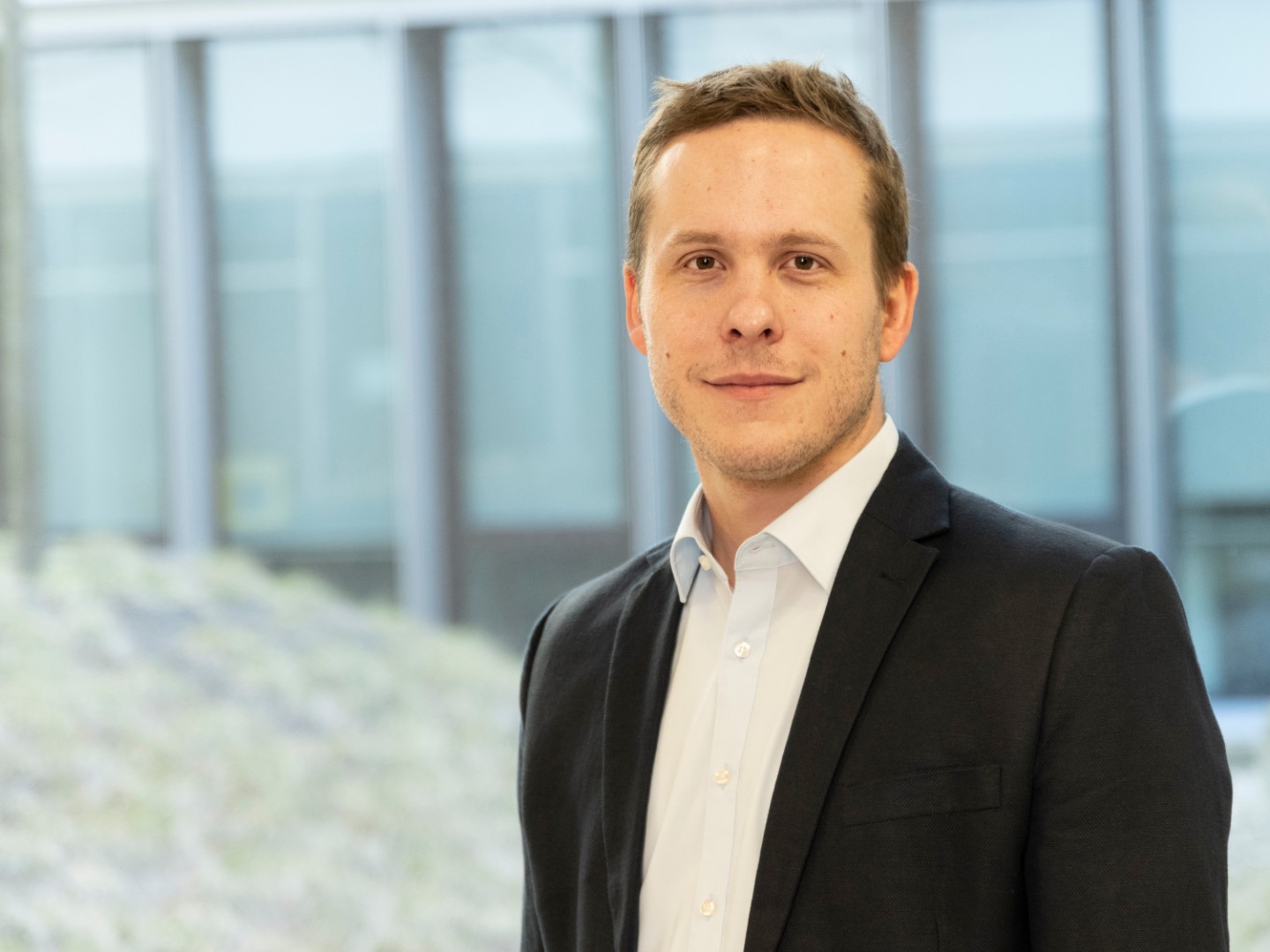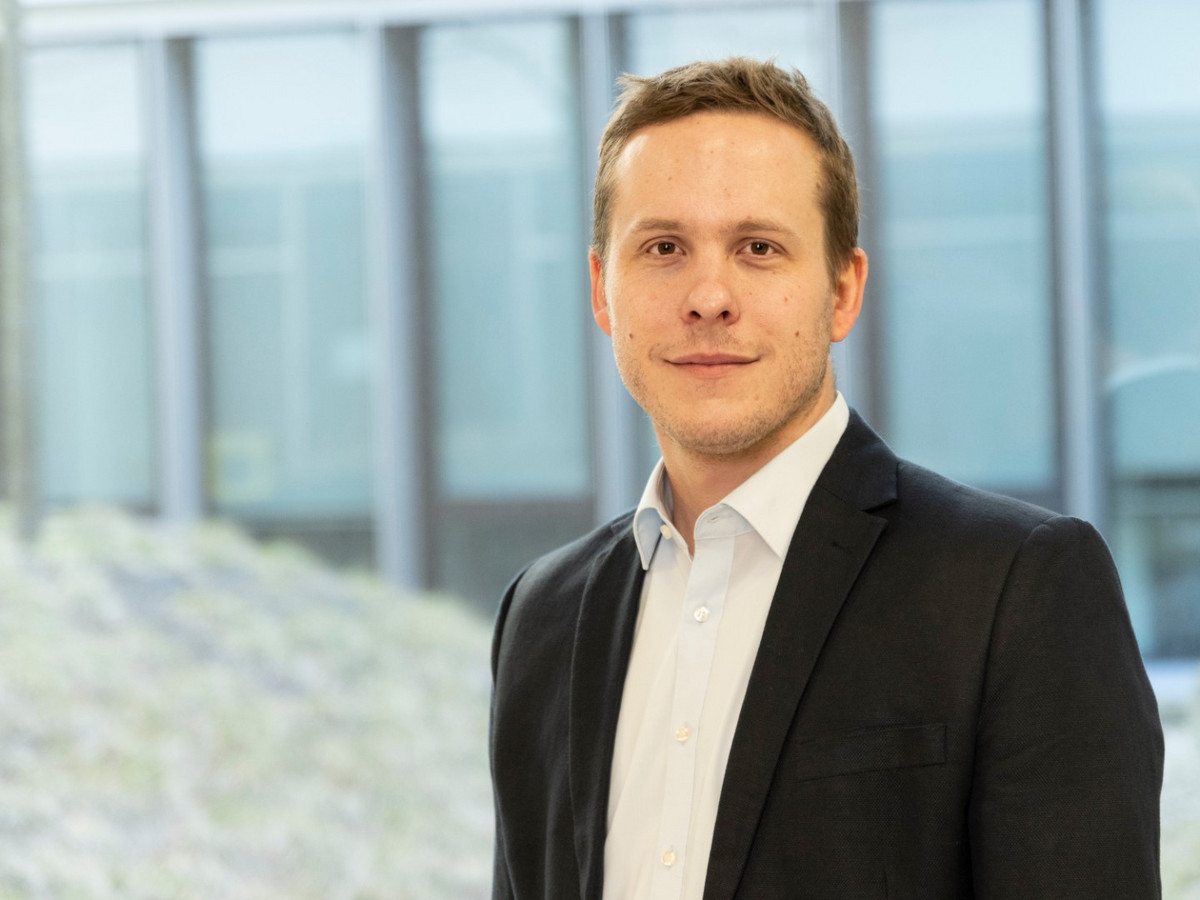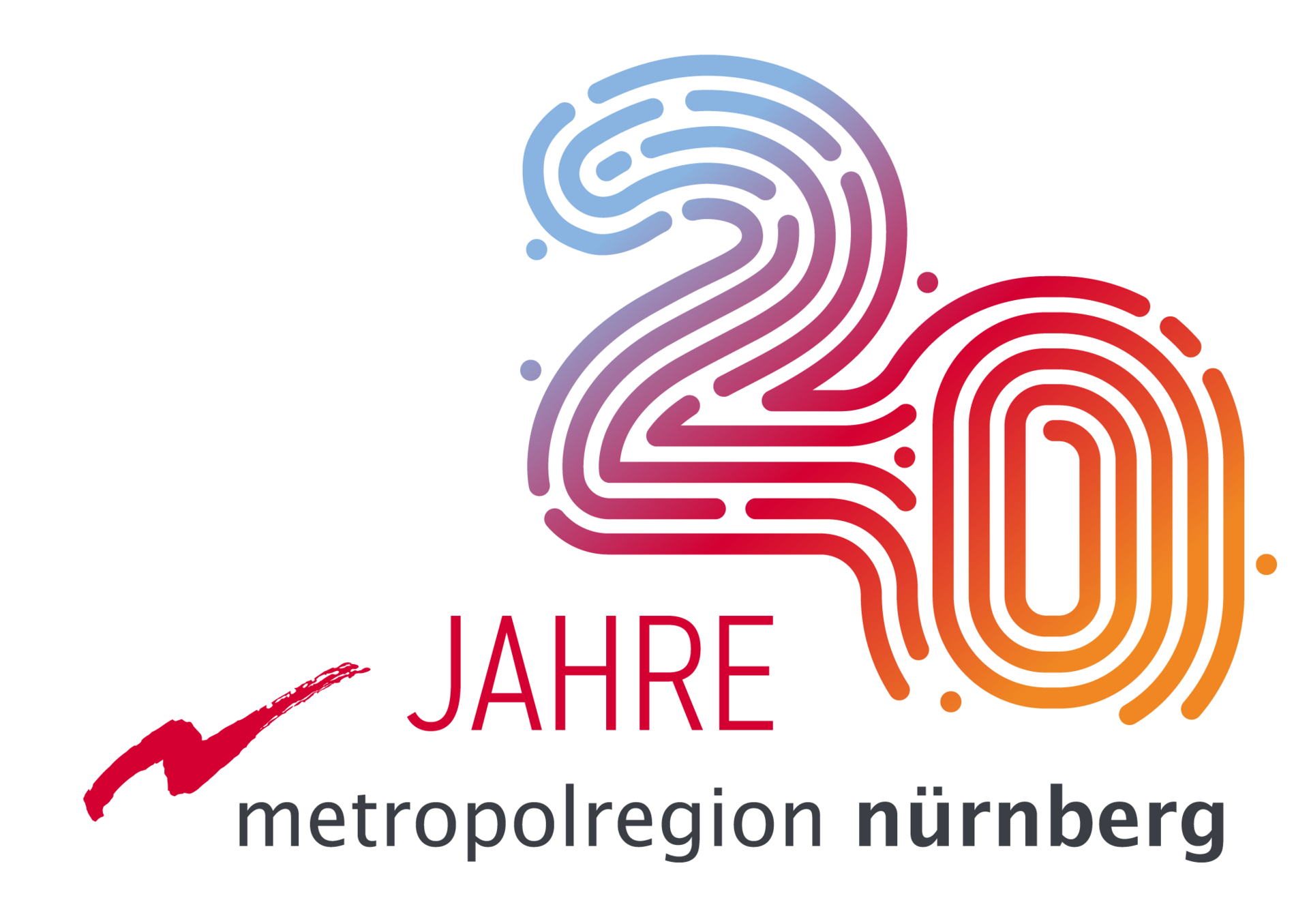Increased AI research for localisation and networking at Fraunhofer IIS
Dr Christopher Mutschler has been head of the Localisation and Networking division at the Nuremberg site of the Fraunhofer Institute for Integrated Circuits IIS since April 2024. He succeeds Dr Günter Rohmer in this role. His research focuses on machine learning at the interface to radio-based localisation systems.
Christopher Mutschler has been working at Fraunhofer IIS for 14 years and has headed the "Precise Localisation and Analytics" department at the Fraunhofer IIS site in Nuremberg's Nordostpark since 2020. Mutschler studied computer science at Friedrich-Alexander-Universität Erlangen-Nürnberg (FAU) and also completed his doctorate in this field in 2014. He still works at the Chair of Machine Learning and Data Analytics at FAU as a lecturer in reinforcement learning. His research focuses on machine learning at the interface to radio-based localisation systems. These activities and his high level of scientific involvement at leading AI conferences and in relevant committees, such as the International Conference on Indoor Positioning and Indoor Navigation IPIN, make him the "perfect match" at the top of the field.
"In Christopher Mutschler, we have gained a committed successor for the Localisation and Networking division, who aims to strike a balance between scientific excellence and a clear focus on the technology transfer mission that is essential for Fraunhofer," says Prof. Alexander Martin, Institute Director at Fraunhofer IIS with responsibility for the Nuremberg site.
Greater focus on AI and machine learning
The division develops technologies for localising and networking people and objects and is an important point of contact for innovations and developments in radio-based industrial, mobility and IoT applications - from satellite-based to near-field positioning and intelligent networking technologies. "Especially in digital transformation processes and new mobile applications, the division's teams can and have demonstrated their strengths with developments such as mioty, 5G localisation, Galileo PRS (Public Regulated Service) receivers, energy harvesting and AI. I am delighted that in my successor Christopher Mutschler we have now found a specialist for AI/ML who, together with our employees, can continue to optimally position our topics for the future," says Dr Günter Rohmer.
Development of resilient IoT systems
The high demand for embedded flexible systems in industry, business and for everyday use is increasing with the availability of radio-based technologies and environmental conditions. Hybrid wireless systems that can be modularly and flexibly adapted to the respective requirements are therefore at the top of the wish list for scenarios in human-machine interaction or for automated or autonomous vehicles. "With suitable ML/AI and, in future, models and processes supported by quantum computing, suitable localisation technologies can be developed and used faster, more precisely and more efficiently than before. Systems will be able to recognise people or objects seamlessly depending on the changing environment. Networked sensors that function independently of cloud connections or power supply via edge AI technologies or energy harvesting not only make an important contribution to the security and sustainability of IoT systems, but also make them resilient to failures, attacks or changes in the overall context," says Mutschler, explaining the focus of research and development work in the field of localisation and networking.

© Fraunhofer IIS/Paul Pulkert | Dr Christopher Mutschler takes over the Localisation and Networking department at Fraunhofer IIS.



